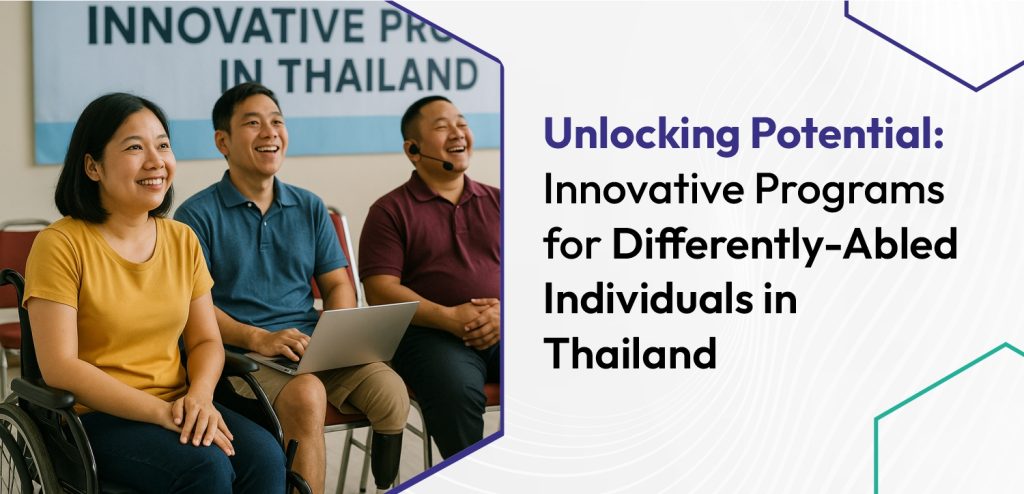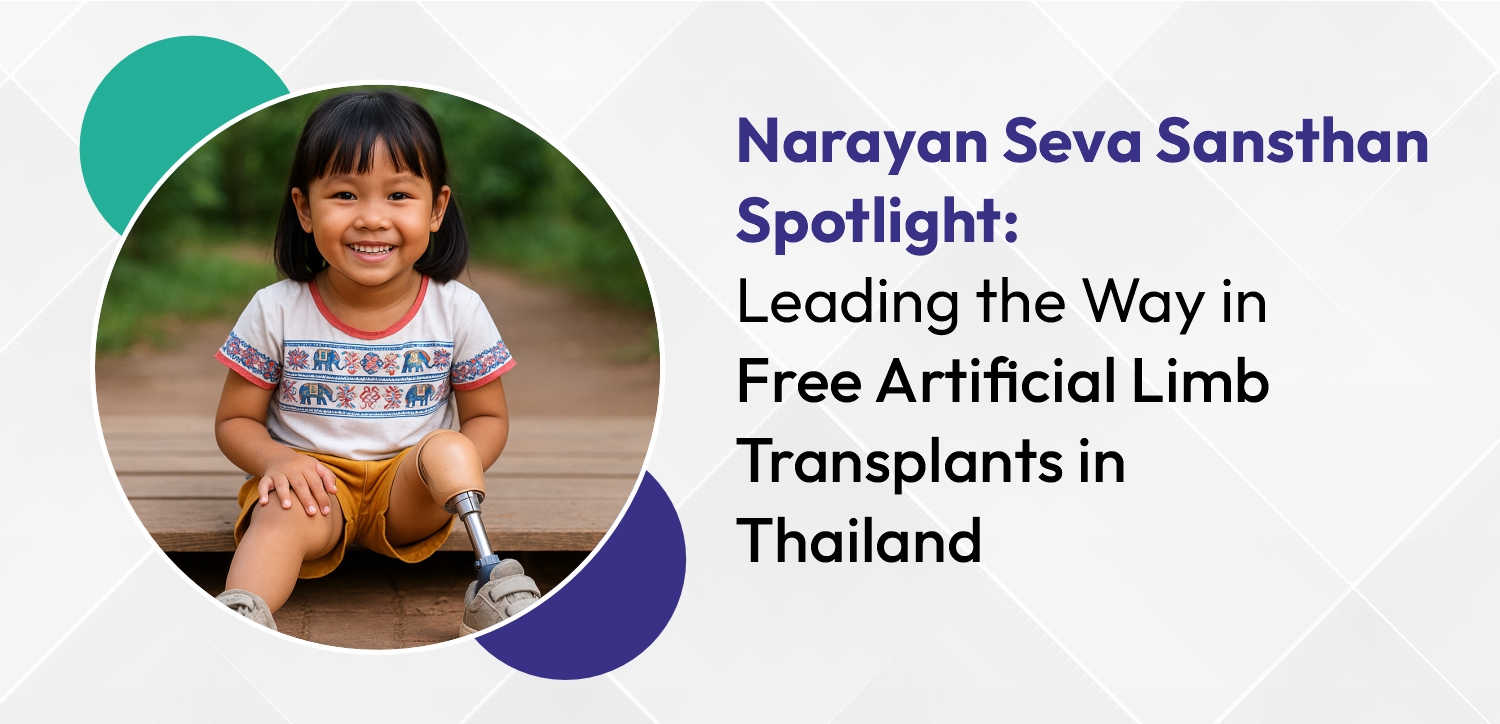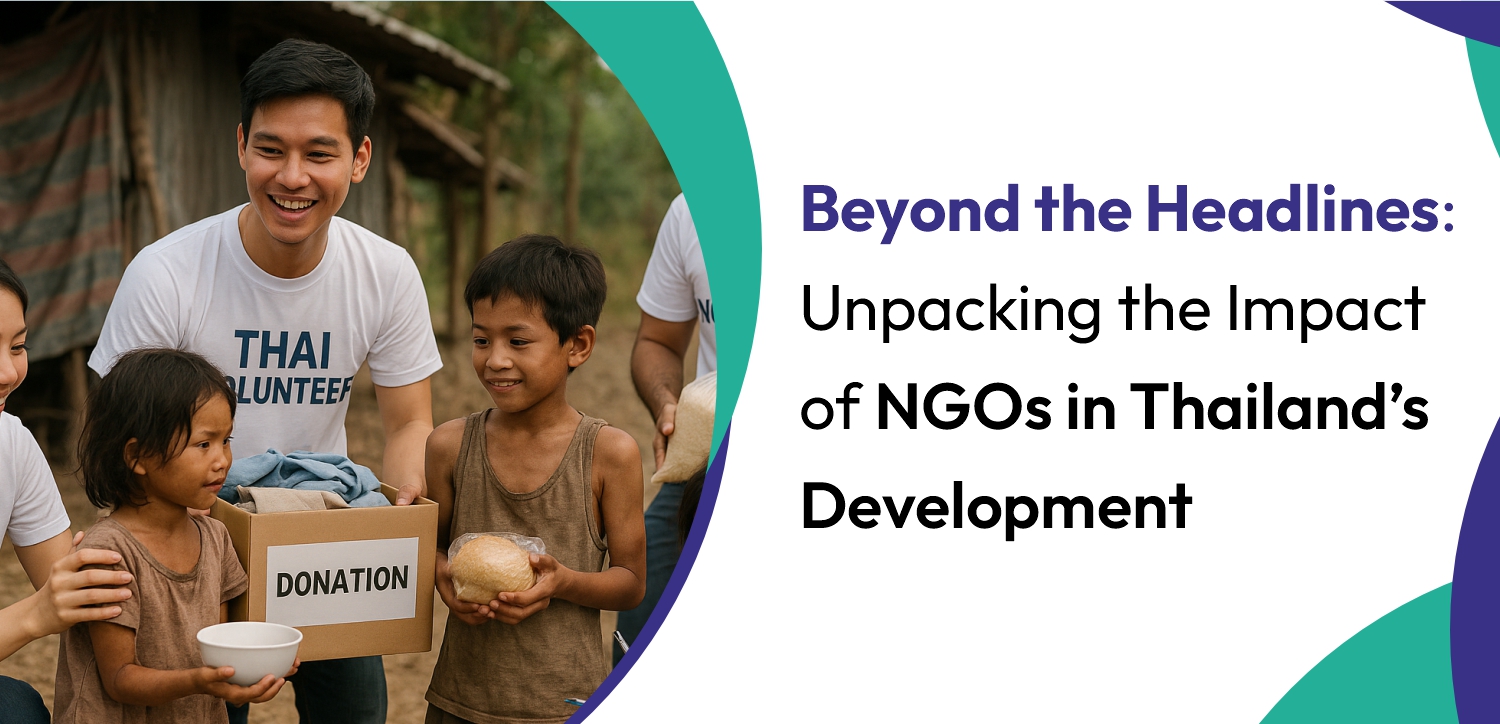Unlocking Potential: Innovative Programs for Differently-Abled Individuals in Thailand
Thailand has made remarkable progress in creating a more inclusive society for differently-abled individuals. With a strong focus on accessibility, empowerment, and equal opportunity, the country is transforming the way it supports people with disabilities—both physically and socially. From education and employment to infrastructure and public policy, these efforts reflect Thailand’s commitment to building a society where everyone can thrive.
1. Inclusive Education Initiatives
The Ministry of Education in Thailand, in partnership with NGOs and local organizations, is driving inclusive education across the country. Schools are now better equipped to serve students with physical, intellectual, and sensory disabilities through tailored teaching practices and accessible technologies.
The Inclusive Learning Promotion Program trains teachers in adaptive education strategies, while tools like sign language interpreters, learning apps, and tactile materials help students with special needs fully participate in classroom learning.
In rural areas, mobile classrooms and support from the Equitable Education Fund (EEF) ensure that even the most remote students receive quality, inclusive education.
2. Vocational Training & Employment
Empowerment through skill development is a top priority. Vocational centers and rehabilitation institutes across Thailand offer hands-on training in trades such as tailoring, computer literacy, and digital marketing.
The Thai Red Cross Rehabilitation Center in Samut Prakan and programs like CP Group’s Disability-Inclusive Employment Program provide long-term job placement and financial stability to thousands. These efforts help the differently-abled community gain confidence and economic independence.
Meanwhile, the Social Innovation Foundation (SIF) runs specialized training for digital skills like coding, web design, and e-commerce, supporting remote job opportunities for people with mobility limitations.
3. Accessible Infrastructure & Smart Mobility
Mobility is freedom, and Thailand is investing in accessible cities. Bangkok, Chiang Mai, and Pattaya are leading the way with inclusive infrastructure such as wheelchair-friendly sidewalks, tactile paths, and accessible public transport.
The Bangkok Metropolitan Administration (BMA) has upgraded BTS and MRT stations with elevators, Braille signage, and audible announcements. Services like GrabAssist provide safe travel for wheelchair users.
Thailand’s focus on Universal Design ensures that malls, hospitals, government offices, and even cultural landmarks are accessible to all citizens.
4. Government Policies Supporting Disability Rights
Thailand has implemented a legal framework that supports the dignity and rights of differently-abled individuals. The Persons with Disabilities Empowerment Act ensures access to education, healthcare, and jobs.
Financial assistance, healthcare, skill development, and tax exemptions are among the many benefits provided. The government also mandates that companies with more than 100 employees hire at least one disabled person—or contribute to the national disability fund.
The Office for Empowerment of Persons with Disabilities (DEP) monitors and promotes these policies nationwide, ensuring impact at the grassroots level.
5. NGO and Community-Led Contributions
NGOs are bridging critical gaps in service delivery. Organizations such as Narayan Seva Sansthan Thailand, Asia-Pacific Development Center on Disability (APCD), and Disabled People’s International Thailand offer free surgeries, mobility aids, legal aid, and mental health support.
Community programs, inclusive sports, vocational workshops, and cultural events empower individuals while building awareness and acceptance across society.
6. Stories of Change and Hope
Real lives are changing. Nattapong, a hearing-impaired youth from Khon Kaen, learned computer skills from a local NGO and now runs a freelance web design business. Pim, a polio survivor in Chiang Mai, became a skilled tailor and now sells handmade bags online.
These stories reflect not just personal success—but the success of inclusive, compassionate systems that empower rather than isolate.
Conclusion: Toward a More Inclusive Thailand
Thailand is setting a bold example for disability inclusion in Southeast Asia. Through innovative programs, policy reforms, and community partnerships, the country is proving that progress is possible when we focus on ability—not disability.
With continued efforts and public support, Thailand can truly become a nation where no one is left behind. Let us all be part of this journey to unlock potential, transform lives, and build an inclusive future for all.







